Matador by Uko Bendi Udo
 This time the car almost hit him. What was he thinking? Like the matador you must know where the bull is, Ufan reminded himself. You must be in charge of your immediate surroundings, and your reflexes must be as sharp as a cat’s claw.
This time the car almost hit him. What was he thinking? Like the matador you must know where the bull is, Ufan reminded himself. You must be in charge of your immediate surroundings, and your reflexes must be as sharp as a cat’s claw.
Ufan stood ramrod still and shot the driver of the Honda Accord sedan a stern gaze. The driver jammed his palm into the middle of the wheel and let loose an ear splitting blast. Ufan slapped the hood of the car defiantly, daring the driver to run him over. Not today, not you. I will be the chooser of my taker.
“Matador, Matador! Wait,” someone called out. He recognised the voice but chose to ignore it. Whatever it was could wait. He had to make this sale. As he weaved through the thicket of slow-moving vehicles, he wondered if last night’s dream was short-circuiting his thought process and reflexes. Whenever he had those dreams, the next day was a mess until he’d told someone about it or delivered the message to the individual in the dream.
“Pure water, pure water!” Ufan shouted as he moved towards the yellow taxicab a few feet away. This time he announced his wares as if he was cursing at that uncontrollable force that propelled him forward. That force and the dreams were the reasons he was banished from the village. One of these days he’d put an end to it. Dead boys don’t dream.
“Get away from here!” the rotten-toothed cabdriver said as he waved his bony fingers at Ufan. The riot of human and vehicular noises at the Lagos Motor Park faded in for a moment: Ufan looked around briefly and noticed in the shadows of dilapidated brick buildings standing shoulder-to-shoulder, man, woman and child, in both Western and traditional buba and sokoto outfits - looking as stressed as the buildings - were conversing in Yoruba, Pidgin English, Ibo and a thousand other local languages.
He joined them as they hustled along the dusty road, weaving in and out of buses, cars and market stalls as they aimed to beat the clock to their destinations. Just as quickly, Ufan tuned out the sights and sounds so as to focus his scattered thoughts. He barged through the sight and smell of black exhaust fumes and arrived at the side of a yellow cab. That’s when he saw the Dada (dreadlocked) woman. It was her! She was the one he saw in his dreams last night.
A bejewelled hand with long, tapering fingers reached out of the passenger window and flashed a naira note at him. The exchange was smooth as usual: he snatched the note out of her hand and shoved into hers a sachet of cold Sweet Pure Water.
However, something else happened that wasn’t supposed to. He dropped the rest of his bags holding the sachets right there in the middle of the traffic. “Abasi mmi, my God!” he muttered under his breadth in Ibibio, his native language.
A bully of a bolekakaja (get off and let’s fight) public transportation bus snarled at him from a few feet away. The driver behind the wheel trained fiery eyes on him. Overflow passengers clinging to the sides of the bus slapped the corroded sides of the bus impatiently.
What to do? Ufan wondered. Pick up the water sachets and flee the scene, and let Dada die, or run after the cab and tell her? If he picked up the bags and ran away from the scene, Asah, his uncle, might never know that he dropped his sachets of water. But that Dada lady would surely die, as revealed in his dream.
The big, raggedy bus blew its horn at him again, just like the big, bloodied bull snorts at a matador when it prods him to make up his mind.
“Kuro lono jare, oleshi, get out of the way, evil thief,” the bus conductor wearing a fierce look and tattered buba and sokoto outfit yelled at him. Ufan went after the cab. When he caught up with it, he tapped on the passenger window.
“Small pikin, you dey craze?” the driver asked incredulously.
“Stop the car,” Dada said as she rolled her window down.
“Madame, he’s a thief. He want to thief your bag.”
“Stop the car, driver.”
“Madame, abeg make you no do am.“
“Please stop the car.”
As the cab slowed down to a crawl, angry honks and shouts from surrounding vehicles came down on the driver. With a vexed look on his face and a fist waved back as retort, the driver drove the car to the side of the sandy tar road and stopped. Ufan trudged up to the cab and waited. He frantically waved at her to step out of the cab. With a little hesitation, she obliged, stepped out of the car and smiled warmly at him.
“Did I owe you anymore money?” Dada asked. She wore a dazzling ensemble of multicoloured traditional Yoruba dress, and her locks were held together by a gele (head wrap). She reminded him of Winnie Mandela.
“No, ma,” Ufan murmured. He wanted to look her in the face and tell her about his dream, but strangely he remained tongue-tied. He lowered his gaze to show respect.
She bent down to meet his gaze. “What’s your name? Why are you not in school?”
He inhaled as a wisp of her floral perfume cut through the open sewer’s stench. “Matador,” Ufan answered, putting on a steely front.
Her brow creased. “Matador?”
“Yes, ma.”
“Madame, I dey go, abeg,” the cab driver warned. “Time na money o.”
“Please give me one minute.”
She reached into her purse and took out a ten naira bill. She offered it to Ufan and said, “Here, take this.”
Ufan shook his head no. “No worry, you pay me already ma. I want to tell you something.” Behind Dada, the cab began a slow roll back into traffic.
“Hey. What’s he doing? Hey, wait!” She waved at the cab to stop, but the driver accelerated and drove off. “Can you believe that? I paid him already.”
A deafening sound reverberated back to where Ufan stood, freezing both he and Dada in place. As if in slow motion, he watched as a molue bus smashed into the cab, half of the cab crumpled in as metal screeched against metal and window glass flew everywhere. A car’s horn stayed on as flames from the engines shot up into the air, sending pedestrians and passengers fleeing in all directions.
Dada stood still, a look of disbelief on her face. Ufan’s thoughts spun out of control. Worried about the taxicab driver, he thought about running up to the burning car to see if he could help. But he also needed to tell Dada that he saw this in his dream last night. What to do?
Thoughts of running into the village hunters flooded his mind, so he was glued in place. Dada might talk to the police. The police might then question him, and that might make it possible for the hunters to find him. As Dada ran towards the burning taxicab, Ufan took off running in the opposite direction.
He ran away from the scene like he ran away from the house in his village when angry grown men with machetes had chased him. He had gotten away from them, but his mother was not so lucky, he was later told. His fists balled up as he jumped over baskets of fruits and yams in his haste. He cut through a market stall, catching the wrath of a trader who cursed at him in Yoruba. He knocked naira coin and paper currency out of the grip of a customer and – for a split second - saw the paper twist wistfully to the ground.
Ufan smelled the pungent scent of Rose’s peeled oranges just before he bumped into her. Her flirty smile disappeared as quickly as it appeared when she couldn’t hold onto the tumbling balls of skinned fruit cascading down her shoulders. “Idiot boy! You don craze for head?” he heard her say behind him in Pidgin English. His feet felt the prickly stings of the rocks and objects on the ground as he ran. He’d lost his flip-flops. It didn’t matter, he had to keep running. The village hunters might be closing in on him.
“Matador, wait,” he heard Pastor say to him as he charged through a group of boys selling the day’s newspapers. “Ole, thief!” a woman said. He ran even faster. He’d not stolen anything, but running the way he was in the eyes of Lagos pedestrians, was evidence he’d done something wrong.
When he got to where the road poured into an open sandy area dotted with rocks, he slowed down and then stopped. Exhausted, he doubled over and looked between his legs backwards. No one within his sight looked threatening. He straightened up and circled a spot wearily, before he sat on the big rock by the roadside and carefully studied each pedestrian that came close.
Here the pace was slower and the pedestrians looked more relaxed and happier. The area sat close to a residential neighbourhood populated with one-story brick houses punctuated with wooden market stalls. He put his head between his hands in an effort to calm his nerves. When he raised his head again, he felt calmer, safer, so he stood up and walked away.
The blow caught him square in the face. He reeled backwards and slammed into the kerosene stove, knocking it off the counter.
“Where’s the rest of the money?” Asah asked in Ibibio, his eyes as red as the pepper Ufan used in cooking the rice stew yesterday. Asah again curled his right hand into a fist.
“Asah, mbok, please, master, “Ufan pleaded. “That’s all the money I made today.”
“I gave you a lot of bags. You’re two hundred naira short. Where’s the rest of the money?”
Ufan slowly rose to his feet. The put-put-put sound of the generator was distorted by the blow to his head. His face throbbed with so much pain he wished that he could get his hands on a sachet of pure water to rub it with. He braced for the next blow. He could dodge charging cars easily, but running away from a grown man’s punch demanded far quicker reflexes.
“Speak up!” Asah demanded. Soaked all over with sweat, his gut hung out of his white singlet like blubber off a walrus’s neck.
“I’m sorry,” Ufan said.
“Sorry for what?”
“I dropped them.”
“You dropped them? Where? How?”
There was a loud knock on the door. Both of them turned to gaze at it. Asah walked up and cut off the generator, which in turn stopped the water filtration process he used in making the pure water for the Sweet Pure Water sachets. “Who is it?” he asked in English.
The knock repeated, this time louder.
Asah turned to Ufan and said in Ibibio, “Are you expecting anybody?” Ufan shook his head no, pain preventing him from opening his mouth.
“Matador!” was the reply from behind the door. “Matador, na me.”
“I thought you said that you were not expecting anybody?” Asah yanked open the door, grabbed Pastor by the arm, and pulled him into the house. “What are you doing here? Who are you?”
“Oga, abeg,” Pastor pleaded. “I come see if Matador dey okay.”
“Matador?” Asah asked derisively. He pulled Pastor by the collar and leaned into his face. “May be you know where the rest of my money is.”
“Let him go,” Ufan said in Ibibio. Both of his hands were balled into fists. “He does not know anything about it.”
“Oga, abeg,” Pastor said. “No vex. I come see if Matador dey okay.”
“Shut up!” Asah turned to Ufan and said in Ibibio, “What did you say to me? You’re talking back now, eh?”
“He didn’t do anything. Leave him alone,” said Ufan.
Asah let go of Pastor and then moved towards Ufan. “What would you do to me if I don’t, eh?”
Pastor took the opportunity and ran out the door. Asah went after him. Ufan yanked out the cabinet drawer and tossed out utensils as he searched for a knife. Asah returned a few seconds later empty-handed. When he looked up, Ufan had a knife in his possession. Asah’s brow tightened. “I don’t believe it. What’re you going to do with the knife? Stab me?
Through the pain, Ufan opened his mouth and said, “Don’t hit me anymore. I’ll find your money and pay you back.”
“How?”
Ufan didn’t know, but somehow he was going to find a way to recover what was lost when he dropped the sachets on the road.
“How?!”
Ufan remained quiet. Asah quickly stumped off in the direction of the living room closet. Ufan knew why he was headed that way. Just as Asah reappeared with the long, snake-like cane, Ufan dropped the knife, ran into the bathroom, slammed the door shut behind him, and slid the bolt into its lock.
“Open the door so I can teach you a lesson, you little thief!”
Ufan heard the cane slam against the bathroom door, prompting him to double-check the bolt. He slowly backed away from the door, bracing for the worst, but only heard silence.
A cell phone rang, followed by the Sweet Pure Water ring tone Asah had created for the business. Ufan hated that ring tone because it mimicked the late Prince Nico Mbarga’s popular “Sweet Mother” song reminding him of his mother, which made him sad. “Hello?” a voice said through the cell phone’s speakerphone.
“Yes?” Asah answered in English.
“I’m at the airport,” the voice said in Ibibio. Ufan recognised the voice but could not place it.
“Etuk, afo ke do, is that you, Etuk?” Asah asked.
“Yes. Where are you?”
“Wait for me. I’ll be there to pick you up. Don’t take a cab.”
“Mme kob, I hear you.”
The cell phone tone cut off. “You little thief,” Asah said. “You better have my money by the time I get back.”
Ufan uncoiled his fists when he heard the front door close. He trudged up to the cracked mirror above the rust-stained ceramic sink and studied his features. Unkempt hair topped a choir-boy face now distorted by a swollen eye smeared by a smudge of blood. He could not recognise himself. He seemed to be getting skinnier by the day.
He once was told that he had an angelic smile, a smile that could soften a heart of stone. He’d not flashed that smile in a while. How could he? He was evil. Evil ones were not supposed to smile. Their calling card was a scowl, a scowl like the one gazing back at him now in the mirror. He tore off a piece of toilet paper, dipped it in the toilet tank’s water, and dabbed his face with it.
He may be evil, but he was not a thief, he reminded himself. His mother taught him to keep his hands off other people’s possessions. And it was one lesson he intended to keep until his death, a death whose time he was going to be the dictator of, not Asah. He would not allow Asah or anyone else beat him to death.
Seeing that the wet toilet paper did nothing to temper the pain in his face, he threw it into the toilet. He wiped the blood off his right foot, and then slipped into another pair of flip-flops. He emerged from the bathroom and cleaned up the spilled kerosene on the floor of the kitchen.
Ufan reached into a cabinet and retrieved the oversized Los Angeles Raiders cap a customer once threw at him from a moving car in lieu of payment. He peeked cautiously past the window curtain, and then exited the flat.
It was dusk when Ufan arrived at the outskirts of Surulere, a suburb of Lagos, miles away from Asah’s flat. As he trudged along the sandy tar road, he forced himself to take in the scenery. It was a mechanism he used occasionally to keep his mind away from the pain and misery he was enveloped in.
A car’s horn blew. He turned to look. He’d walked right into traffic. A danfo’s (public transportation) conductor slapped the side of the vehicle, urging Ufan to get out of the way, but he continued on the side of the road.
He walked past shiny and expensive automobiles like Mercedes and BMW sedans. Their drivers honked impatiently as the cars crawled past slow-moving pedestrians. New and raggedy-looking Japanese imports like Toyota and Honda sedans, used as private cars or taxi cabs, moved along more patiently.
A shirtless private courier, dripping with sweat, dragged a wooden trolley loaded with goods behind him as he weaved through traffic. Candle lights, standing in for interrupted electric power, shone from one and two story brick buildings on either sides of the road. Washed clothing hung on strings that lined the balconies of the buildings. Ufan noticed that because the landlord of the building where Asah and he stayed had warned them against hanging clothing on the balcony, Ufan always hung his clothing in the back of the house.
Ufan’s flip-flops slapped against his feet as he trudged closer to the wooden shack ahead of him. The sounds of crickets punctuated the air as a stray dog ran across the street and then barked defensively as it stood in the shadows of an abandoned building. The sign on the wooden post in front of the shop ahead read “Bababeji News Depot.”
Ufan kicked up sand as he tried and failed to avoid the heap of dirt in front of the shack. He walked to the back of the building and retrieved a key from its hiding place. He slipped into the building, locked it behind him, found a candle, and lit it. The light revealed a room furnished with stacks of national and international newspapers and magazines. Ufan picked up the fallen bundles and stacked them up neatly on the table.
When he finished tidying up the place, he took out the raffia mat and spread it on the floor. Using a stack of newspapers as a pillow, he laid himself down and stared at the ceiling. His eyes briefly traced the configuration of the wooden planks that hugged each other to form the ceiling. Hoping to lull his restless mind to sleep, Ufan stared blankly at a spot on the wall. The biting hunger in his stomach and the pain from Asah’s blow made it difficult.
He thought of his mother. She would not have let him go hungry like this. She would not have let him suffer like this. The angry tears welled in his eyes and he began to remember how the village hunters had come to their village house in the middle of the night. They pounded at the door. They had repeated the pronouncements of the village preacher: claiming that Ufan was a witch because he’d dreamt of a villager’s death before he actually died. The preacher had ordered Ufan be removed from the village.
They called for his mother to hand him over, but she would not obey. She roused Ufan up and led him through the back door. She ordered him to run, run as far as his legs would carry him. Run until he saw a face that did not belong to his village. Instead he stood there and cried. He did not want to leave his mother. He would rather die alongside her if death was at hand.
The village hunters then kicked down the door. They turned out to be grown men with machetes. Ufan recalled seeing the lead man’s face. He had deep set eyes contorted by hate and anger. He would never forget that face. His mother pushed him, and so he began to run. He wanted to obey his mother so he ran knowing that behind him his mother was in imminent danger.
As he ran, he brushed against prickly bushes, and stepped on sharp objects jutting out of the ground. He wanted to stop, turn around and go see if his mother was okay. But he’d never disobeyed his mother before, and so he continued to run. When Ufan finally turned to look, flames shot up from the roof of their house. And that’s when he stopped. Even though Asah confirmed it to him later, he knew then that she was dead. He’d refused to believe the dream he had about her.
He turned and continued to run. He had wanted to run beyond where his mother advised him to run to. He had wanted to run to the end of the Earth, and may be even beyond that. As he ran, he came upon a man on a bicycle in the darkness and collapsed in a heap, because he couldn’t run any longer. The man on the bicycle bent to check on him. Ufan, exhausted, looked up with frightened eyes but did not recognise his face, and that’s when he knew that he was safe.
Ufan snapped out of his trance and felt the wetness on his cheeks. He’d been crying. Maybe he should end it all sooner. He wiped the tears, but then tensed up when he heard the sounds of footsteps on the gravel outside the shack. Someone was at the door. Who could it be at this time of the day? The stray dog outside barked furiously. Why was Bababeji, the owner of the shop, back so soon? He was supposed to be out of town until tomorrow. Had the men with machetes followed him to the shop? He jumped off the mat and pressed against the back door. There was a knock on the front door. His heart pounded frightfully in his chest.
“Matador,” he heard someone whisper from behind the door. “Ufan, na me, Pastor.” Ufan sighed with relief and let him in.
“Wetin you dey do here?” Ufan asked as he threw searching glances around the street.
“Wetin you dey do here?” Pastor asked. “I look everywhere for you.”
“Why?”
“Why? Why? You be my friend, Matador. You run from the bridge like you do something. Wetin you do? Wetin happen to your face?”
“You ask too many questions, you know?” Ufan looked away defensively.
“Why your uncle beat you?”
“Don’t worry. I am fine.”
“You no look fine. You look sick!”
“I am hungry.”
“I bring you food.” Pastor opened an aluminium foil wrap to reveal a serving of moin moin, a bean cake.
“Thank you,” Ufan said repeatedly as he took the food from him and began eating ravenously. He offered Pastor a piece of the cake.
“Eat. I fine.” Pastor leaned against a desk and watched him eat.
“You need to go home, you know? Na night. Your master must dey look for you,” Ufan said.
“I fine.”
“He no safe here, you know?”
“He no safe for house.” Pastor pulled out a chair and sat down. “One woman dey look for you today for bridge.”
Ufan stopped chewing. “Which woman?”
“She get Dada hair.”
“Why she look for me?”
Pastor shrugged. “Wetin you do am?”
“I dream about am. She no know. I been wan tell am.”
Pastor sighed and leaned against the chair. “The accident.”
Ufan nodded and then continued eating. He looked at his friend and grinned.
“Wetin?”
“Nothing.” Ufan found it ironic that his best friend was a street hawker like him, but who also doubled as a street preacher on the side. He always overruled the voice in his head that advised him at times to shun Pastor because he was a Christian preacher like the woman in the village who’d sentenced Ufan to the harsh life he was now living. Not all preachers were wicked; he’d learned to tell himself.
“The owner of this place no mind sey you stay here?” Pastor asked.
“No. I clean the place for him. And na my school.”
“Your school?”
“Yes. When I finish selling water, I use to come here to look at the magazine and newspaper. Bababeji, the owner told me that I suppose to pay to read the paper. But I no have money. So he say anytime I clean the place he go give me newspaper or anything I want to read.”
“Why you call am school?”
“He think say I play wayo (tricks) with am, so he tell me to read to am one time, you know? But I no know how to read well. So he say that he go teach me how to read. I wanted to know how to read so I can go to university, you know? My mother been want me to go to university...” He looked away as his eyes moistened with tears. “But I be evil.”
“You no be evil, Matador. I told you that.”
“That’s why I want to go away.”
Pastor stood up. “Go away? Where?”
“Away, Pastor. I tire. I want to go home.”
“Who dey home?”
“My mama. I want to go meet am.”
“Your mama don die, Matador. Na wetin you tell me, abi?”
Ufan stood up and produced a National Geographic magazine. He flipped through it and showed Pastor a page.
“Who be this?”
A glorious smile stretched across Ufan’s face. “This is a matador.”
“Which one? The man or the cow?”
“Cow? Pastor this is not a cow,” Ufan said, continuing with formal English. “It is a bull. And that man is not a man.” Ufan struck a pose. “That is a matador!”
“The cow look like cow to me. Wetin the man dey do?”
“He is fighting the bull. With his life! Stand up.” Ufan stood ramrod straight and held both index fingers up like daggers. “You be the bull.”
“Mooo,” Pastor said as he crouched low to the ground. His face lit up like a child’s on a playground.
“The bull no dey say ‘mooo,’ Pastor. He breathe like this.” Ufan made snorting sounds through his nose. “Rush me. Come on.”
“You sure?”
“Yes. Rush me.”
“Mooo,” Pastor said as he charged at Ufan. Ufan sleekly side-stepped his charge and then stuck both of his index fingers on Pastor’s back. For a while both forgot about their desperate situation and played the bull and the matador like two kids on a play yard. Afterwards they both sat still to catch their breath.
“You are a strong bull,” Ufan said.
“Thank you. And you be tough matador.”
“Thank you.”
“That is where you get your name, abi?”
Ufan nodded yes. “I am a matador. The cars are my bulls.”
“That is better. He no good to kill the animal like that.”
“I agree. But he no good to kill little children on the road who are trying to sell something, you know? You know that the drivers try to hit us for nothing.”
“Na true.” Pastor sighed as he stood up. “I dey go, Matador. Come with me.”
Ufan shook his head no. “I dey fine here. Pray for me, Pastor.”
Pastor’s brow creased. “You never ask me to pray for you before. You say you no believe...”
“I ask now.”
“Okay. Stand up.” Pastor brought out a turn page from the Bible and read from Psalms 121. He talked about the meaning of the passage, and then asked Ufan to repent his sins. He then prayed for him, and soon after he left the shop, prompting the stray dog to bark loudly. Still tired but feeling better, Ufan walked up to the center of the shop, took off his T-shirt and practiced his matador moves for several minutes.
An hour later, while Ufan lay on the raffia mat trying to go to sleep, there was a knock on the door. He frowned. What had Pastor forgotten? “Pastor, na you?” No answer. The knock continued, prompting Ufan to call out Pastor’s name again.
“Please open the door. It’s me.”
Ufan recognised the female voice but remained frozen in place. “Who be you?”
“Ufan, ami ke do, Ufan, it’s me.”
Mother? He rushed up to the door, but then stopped. It couldn’t be; his mother was dead. He opened the door. Standing on the other side of the door was Dada. But she was not alone. A black Mercedes Benz sedan sat on the other side of the road. Ufan noticed that a bald-headed man sat behind the wheel.
“I’ve been looking for you,” Dada said in Efik, a language close to the Ibibio language.
Ufan paused. It could be a trick, to see if he spoke the language, to see if he was the one they were looking for. He stuck to Pidgin English and said, “Why?”
“You saved my life,” Dada said in Efik.
“You welcome. Now go, please.” He closed the door and leaned against it.
“Ufan, open the door. I know more about you than you think. Your uncle told me everything.”
He flung the door open. “Na wetin he tell you?”
“May I come in?”
Ufan studied the man in the car. “Who he be?”
“My friend. It’s okay, Ufan.”
“He no nice here, you know?”
“I’ve been in worse places.”
“How you know where I live?”
“Your address is on the sachet you sold me.”
“How you find this place?”
“You’re very popular amongst your friends at the bridge. May I come in?”
Ufan let her in and closed the door behind her. “You speak Efik. You no be American?”
“I’m both. I live in America, but I was born in Uyo. I’m here to do a research on kids like you. I was once one of you.”
She would’ve known by now if she wanted to see if he understood Efik, Ufan thought. But she’d not hurt him yet. However, he would continue to speak to her in Pidgin English. He was not completely sure about her. “Why you study me? I no be animal, you know?”
“My studies are with humans, Ufan. People. Children like you,” Dada said in English.
Ufan stared at her probingly. “Wetin you do for America?”
“I teach at a university,” Dada said, returning to Efik.
Ufan’s eyes widened with excitement, and then relaxed. “I want go to university.”
“You can still go to a university.”
He was surprised that she didn’t laugh out loud at him. Everyone else did when he told them what he wanted to do with his life. That was before he came up with his new plan. Ufan studied her closely and then sighed, lowering his guard a little. “I don’t know why you want study me. I no do anything, you know?”
She gesticulated excitedly and said in English, “Yes, you did!” She sighed, and then continued in Efik, “You saved my life. What happened to your face? You didn’t look like that this morning.”
“I fall. Wetin my uncle told you?”
“That you owe him your life.”
Ufan nodded yes.
“How?”
“He bring me to Lagos. He give me house to stay, you know?”
“May I sit?”
“Not nice, madame.”
Dada pulled a chair and sat down. “I’m okay.” They were silent for a moment. She looked about the shop. “Whose place is this?”
“My friend.”
“My name is Miss Idara, and I used to be like you, Ufan. I was nothing. A relative brought me to Lagos with the promise that she was going to put me in school. I ended up a house slave.”
“You no be like me, you know? I am evil.”
“Why do you say that?”
“Asah no tell you?”
“Tell me what?”
Ufan paused. He studied her for a minute, and then sighed audibly. “I see people for my dream. I see them before them die.”
Miss Idara stood up slowly. “Did you dream about me?”
“Yes, ma.”
She sank back onto the chair.
“I tell you say I be evil.”
“You’re not evil!” She said in English, cupping her face with her hands. “You’re not evil, my son.”
“The village preacher say I be evil.” Ufan’s jaws tightened angrily. “She say I be witch, you know?”
Miss Idara frowned. “A village preacher?”
Ufan nodded yes. “Yes. She say I be evil, you know?” He said it in a monotone. “The men come to my house with knife. My mother say ‘run.’” Ufan’s breath became audible, angry. “I run. But they kill am.” His right foot shook nervously. They kill am. They kill my mama. She no do them anything, you know?” He slapped his chest for emphasis. “Na me be evil. Na me they suppose to kill.”
“Come, come,” Miss Idara said in Efik as she sank to her knees.
Ufan waited, burning her with a gaze both focused and distant. He took two steps towards her and stopped. Tears flowed down his face. He clumsily swiped at the tears. She crawled on her knees towards him and then gently reached for his hand, and pulled him to her. She hugged him for a long time. He did not want to leave her embrace. She was warm, and safe.
“You are not evil, Ufan. What you have is called a gift.” She hugged him so tight that both began to cry.
He pulled away from her and said, “Gift? Wetin you mean?”
“What you have is called a gift in America and all over the world, even here in Nigeria, Ufan. They’ve even made a movie about kids like you in America. It was called The Sixth Sense.
“I no see am. I read about am. The boy see dead people, you know? He different.”
While she held onto his hands, Miss Idara stood up and glanced at the newspapers and books around her. “Yes, you are right. He had a different gift. Nevertheless, you have a gift, and no preacher in the world should condemn you because of it. You are special, and you do not deserve all that has happened to you because of your special gift. On behalf of humanity I apologise to you.” She threw glances about her. “But you can’t stay here.”
“I safe here,” Ufan said. Miss Idara stayed with him for a while and then left.
The man, big and menacing in frame, entered the house and quietly closed the door behind him. Asah, groggy with sleep, trudged into the living room and started screaming at the intruder. Asah told him to get out of the house. They had a heated exchange and then the intruder pulled out something from his coat pocket. It looked like a knife. He jabbed at Asah and then watched as Asah fell to the ground. Ufan bumped into a chair as he slowly backed away from where he had stood. The intruder turned to look, and that’s when Ufan saw his face. He looked familiar. Ufan screamed…
Ufan woke up with a jolt. He jumped off the mat, folded it and was soon out of the shop. With his Raiders hat on, he walked right into the early morning activities of the neighbourhood. “Eka aro, good morning,” a pedestrian called out to a neighbour. He repeated the same greetings to any adult that made eye contact with him. It was a habit he brought with him from the village. Somehow he was afraid of getting a beating at home if an adult reported to Asah that he failed to utter the appropriate salutations on the street.
A car’s horn blew, prompting him to move out of traffic. He pushed ahead, the urge to get to Asah and tell him about his dream propelling him forward. Since his mother’s death he’d made it a point to take all such dreams seriously. Ahead of him, a Toyota sedan bobbed and weaved over bumps and pot holes that littered the muddy road. None of the sounds and activities did anything to calm Ufan’s jumpy thoughts. Should he tell Asah about the dream? It was a question that ate at him even as he pushed on past the human and vehicular traffic on the Lagos thoroughfare.
It was early afternoon when Ufan walked onto a commercial street where electronic shops dotted the landscape. Loud apala music blasted off a speaker positioned to entertain and draw in customers. The song “Matador Special” by Chief Osita Osadebe seeped out of a shop as Ufan walked by. He stopped to listen to the lyrics, but moved on when the owner of the shop approached him menacingly.
A television broadcast in one of the shops caught his attention. Miss Idara was on a TV program talking about her research. He stopped and moved closer to the television set. Teary-eyed, Miss Idara talked about her life as a child, and then she mentioned Ufan without giving away his true identity.
“Comot here!” the owner of the shop said as he waved at Ufan to move on. Did he know that he was the one being talked about on TV? Ufan moved on knowing that by his looks he deserved to be waved away like a stray dog.
When he arrived at Asah’s flat, he took off his hat and then stood in front of the door and fought the urge to turn around and go back to Bababeji’s shop. He could tell him that he was ready to sell his papers on the street. He knocked on the door.
“Aniewo ke do, who is it?” Asah asked. It sounded like his mouth was filled with food.
“Asah, ami ke do, it’s me,” Ufan replied.
The door flew open. With his mouth stuffed with food, Asah said in Ibibio, “Where have you been?”
Ufan braced for the blow but it didn’t come. “Don’t be angry, please.”
“Don’t be angry? Are you insane? You stayed away all night and you tell me not to be angry?”
“I have something to tell you?”
“And I have something to tell you. Get in here.” He waved Ufan in and shut the door behind him. “Sit down.”
Sit down? Ufan was confused. He expected Asah to hit him or hurl an object at him by now.
“Sit down.” Asah waved Ufan to sit at the dinner table across from him. “What’s wrong with you? I think that Lagos is getting to you. When you first arrived from the village you followed directions I gave you quickly.”
“I’m sorry.” Ufan sat on the edge of the chair, ready to evade any sudden attack.
“Where did you go? I was worried sick. I went to the bridge to look for you.”
Ufan remained quiet.
Asah poured Ufan some cocoa and then pushed some sliced bread his way. “Why didn’t you tell me about the accident at the bridge yesterday? It was in the papers today. Now I know how it could have happened that you dropped my sachets of water. Here, eat something.”
Ufan grabbed the cup of cocoa and sliced bread and got ready to go into the kitchen. “Thank you, sir. I will pay your money back.”
Asah waved at him to remain at the table. “A woman came here looking for you yesterday. Who is she?”
Ufan shrugged his shoulders as he ate hungrily.
“I don’t want anyone to think that I’m not treating you right. I bought you some new clothing. When you’re done eating go and try it out.”
“Yes, sir.” Ufan sat up and cleared his throat. “I’d like to tell you something, sir.”
“That you’re sorry? You’ve said it a million times. I accept. Go and sell my water today. That will really make it up. It looks like it’s going to be a hot day.”
“Yes, sir.” Ufan finished his food and then cleared the table. The urge to tell Asah about his dream still ate at him.
“Go and change into the new clothes. I want to see how they look on you.”
“Yes, sir.”
Ufan quickly cleaned up the dishes, and then he picked up the green and red buba and sokoto outfit on the couch in the living room and went into the bathroom. He took off his tattered T-shirt and then paused to gaze at his reflection in the mirror. His swollen eye looked less swollen, but he still looked beaten-up.
He put on the top and marvelled at how less haggard he looked in it. He heard a knock come from the front door. He wondered who it was. He wished that it was Miss Idara. But the voice he heard was that of a man. Asah welcomed him in Ibibio, and then began to explain the water filtration machine to him and how the pure water business could be very profitable in the village. The visitor thanked Asah for inviting him to Lagos, and that he looked forward to partnering with him in the water business.
Ufan was about to put on the pants of the outfit when he froze in place. The voice in the living room was familiar. It was the voice on Asah’s cell phone yesterday. It was the voice of the visitor at the airport.
Ufan dropped the pants when the voice in the living room triggered another memory. He quietly opened the bathroom door and peeked. What he saw made his heart race and his legs buckle. The owner of the voice was the man he saw the night his mother was killed. He slammed the bathroom door shut, and then sagged against the door. The village hunters were here. He’d never get away from them.
He stood up and quickly slipped into the new pants. His heart raced like never before. What to do? He could slip out through the bathroom window and escape, or he could walk into the living room and confront the killer of his mother. If he slipped out of the flat, he could run until he ran into someone who was not from Lagos, and so make another escape. If he went into the living room, he could confront his mother’s killer and serve her memory well.
“Ufan!” Asah called from the living room. Ufan remained quiet. Asah called him a second time. Ufan opened the door and walked into the living room, his eyes trained on the visitor. Yes, it was him. “Have you forgotten your manners? Get down and pay your respects to the visitor.”
Ufan stayed on his feet, his fists balled-up. “He’s not a visitor. He’s a killer.”
Asah frowned as he exchanged bewildered looks with the visitor. “Are you mad? You do not talk to my visitor like that.” Asah turned to the visitor and said, “I apologise. I hit him yesterday. That might be affecting his head.”
“He killed my mother!” Ufan shook with a combination of dread and anger.
Asah rose to his feet. He took a step towards Ufan and then stopped. He slowly turned to look at the visitor, and then returned to Ufan. He sank back onto the couch, confusion written all over his face. “Etuk, do you understand what this boy is saying?”
Etuk shook his head no and then said, “You got me.”
“What are you talking about, Ufan? Have you lost your mind?” Asah asked.
“Asah, I remember his face from the night my mother was killed. He was one of them.”
Asah turned to Etuk. “Is he telling the truth?”
Etuk stood up and laughed. “What is this, a joke? This little boy insults me and instead of disciplining him you turn to ask me a ridiculous question as such? What has Lagos done to you people?”
Ufan moved up closer to Etuk. He looked him in the eye and said, “You should not have killed my mother. I was the one you were looking for. I am the one you should’ve killed.”
Etuk slapped Ufan hard in the face. “Shut up, boy! You do not talk to adults like that. If your uncle here won’t discipline you, then I will.”
Asah rose to his feet. “You are acting like the boy is telling the truth.”
“And you’re acting like a fool! This boy would never talk like this to me or you back in the village!”
“Yes, if you were successful in killing him. You swore to me that you were not a part of the party that went to my sister’s house that night.”
“He killed my son!” Etuk rubbed his temple as he paced the floor. “The preacher said it. God can not tell a lie.”
“But humans can,” Asah said. “May be the preacher was mistaken. The preacher is not God!”
“But she speaks for Him. I will believe her any day over this evil boy!”
“I am not evil!” Ufan said, standing his ground. “All I did was dream about your son’s death. I did not kill him. You killed him.” Etuk charged after Ufan. Asah charged after Etuk. A fight ensued. Etuk wrapped his hands around Ufan’s neck. Asah let out a mighty grunt as he lifted up the coffee table and hit Etuk on the back with it.
Etuk released his grip on Ufan’s neck, but then grabbed a knife and plunged it into Asah’s stomach. Eyes blazing with murderous anger, Etuk lunged at Ufan with the knife. Like a matador, Ufan sidestepped just in time to avoid the knife’s blade, causing Etuk to stumble forward.
Ufan ran into the bathroom and bolted the door shut. He shoved the window open, and then lifted himself onto the ledge. The bathroom door was kicked in, and Etuk, sporting the blood-drenched knife and a crazed look on his face, lunged for Ufan. Ufan felt a sharp sting in the calf of his right leg just as he slipped through the window. He fell to the concrete ground below and cringed as pain like he’d never felt before coursed through his body.
He stood up and limped away as Etuk swore at him from the bathroom window. As he ran towards the street, he saw a black Mercedes crawl to a stop in front of his building. But he kept running. Behind him he left a trail of blood.
A car honked. He saw the car out of the corner of his eye. Using his matador reflexes, he swung slightly to his right and avoided being hit. And then he stood in the middle of the street as a bolekaja bus approached. This was the chance to end it all, he told himself. Right here. He’d chosen. It will be the bull of a vehicle coming at him that will take him home. Take him away from all this pain and suffering. Take him to his mother.
“Ufan!”
Mother? From the corner of his eye he saw Miss Idara. She stood at the edge of the road yelling and waving at him to move away. He was not evil, he now knew. But he didn’t want to live this life anymore. He would never escape the village hunters. They would pursue him to the ends of this Earth.
“Ufan, mbok, Ufan, please,” Miss Idara pleaded.
Ufan chose. He started to move away from the screeching bus, but it was too late.
This time the bus hit him.
It was like someone had taken a sledgehammer to one-half of him. An immense pain seared through him as he heard screeching tires and briefly saw something yellow try to swerve away from him. He fell to the ground and blacked out.
When Ufan woke up twenty-four hours later, he thought that he was in heaven, and that the woman steering down at him was his mother. Miss Idara smiled at him and then made a sign to say to him that he was safe. He tried speaking but found it difficult. He lifted his hand to touch her. She grabbed it and began to cry.
“Mba mo, where am I?” Ufan asked in Ibibio, the first time he’d spoken to her in his native language.
“Aba ke ufok ibok, you’re in the hospital.”
“Asah?”
Miss Idara never replied. That’s when he knew that Asah was dead. Ufan teared up. “It’ll be all right,” Miss Idara said. “We’re together now.”
Ufan closed his eyes as the power of the anaesthesia washed over him. As he drifted back to sleep, he squeezed Miss Idara’s hand to signify his acceptance of life. He was not evil after all. The fact that he’d cheated death twice confirmed that. It will be all right, he told himself. He went back to sleep.
Matador was written by Uko Bendi Udo.
Copyright © Uko Bendi Udo 2011.
 I’m a microbiologist by education, but can’t remember what the heck that word means now. Blame it on writing. I caught the bug in college (just before med school) and have been deliriously sick with it since (don’t want no doctor). I enjoy creating fiction, and would do it for zip. I was born and raised in Nigeria but now reside in the US.
I’m a microbiologist by education, but can’t remember what the heck that word means now. Blame it on writing. I caught the bug in college (just before med school) and have been deliriously sick with it since (don’t want no doctor). I enjoy creating fiction, and would do it for zip. I was born and raised in Nigeria but now reside in the US.
I took some time off writing to start a family, and let me tell you, it’s far from what the books say. Being a papa to two precocious angels and husband to the most beautiful woman in the world is the hardest endeavour you’ll absolutely ever love and cherish. I like to read fiction populated by characters and settings I’m familiar with. When I’m not able to find such stories, I pick up my pen (or pencil) and write.
Craving for the opportunity to spend more time with my family I got out of the corporate world and now work with kids in the education field. I’ve published works of fiction and feature articles in newspapers and magazines here in the US and UK (The Beat, The Trumpet, etc). I’ve also written radio plays for a Los Angeles radio station (KPFK FM). I love traveling, and a peculiar habit of mine is to hop on public transportation at my place of destination and traverse the city and meet the people. Any other bus or train hoppers out there?


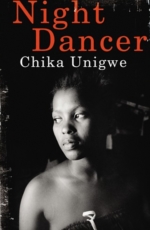

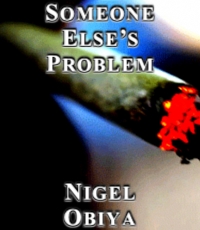

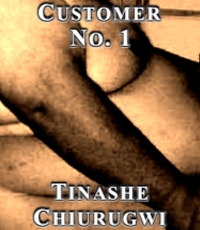
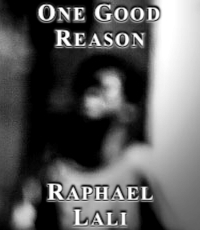
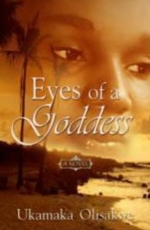

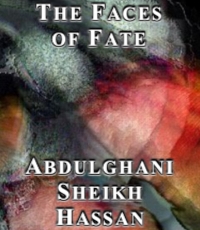

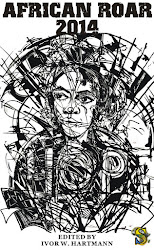
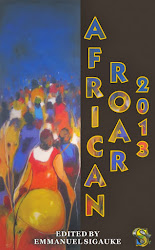
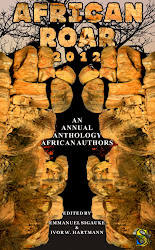

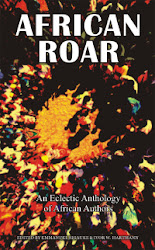

4 comments:
Brilliant!
Thanks, Fred Nwonwu.
Thanks, Fred Nwonwu.
Brilliant!
Post a Comment